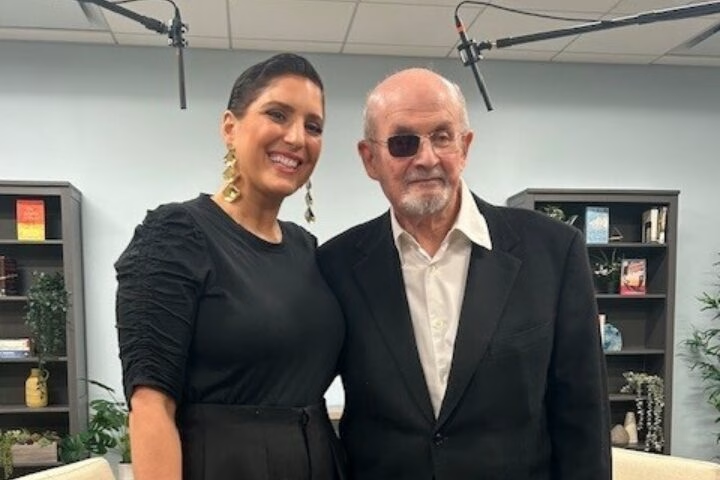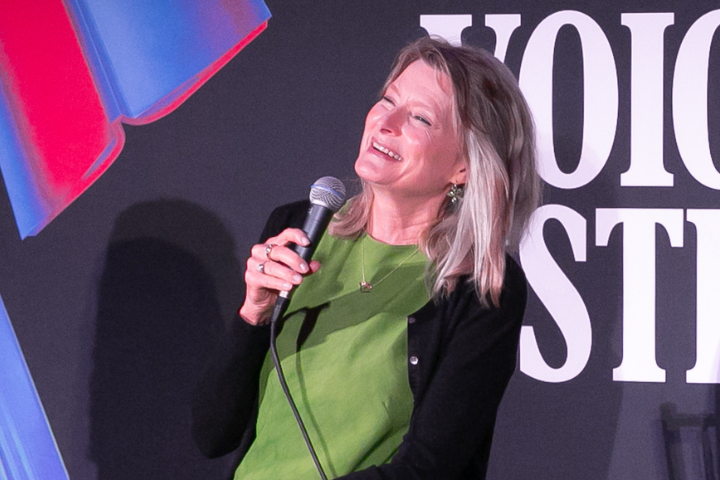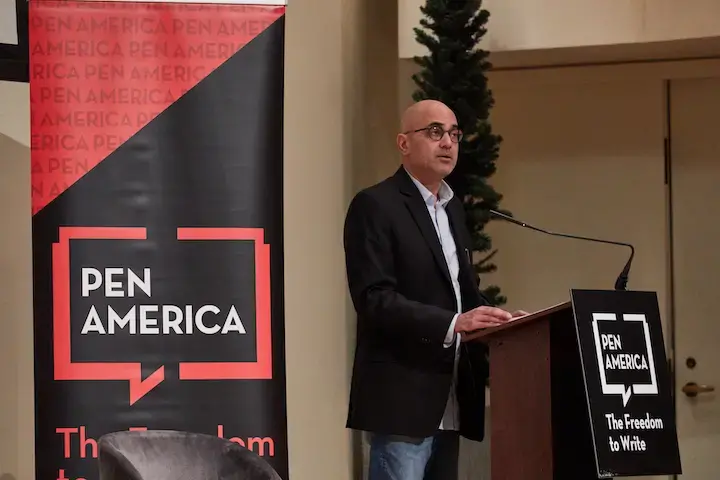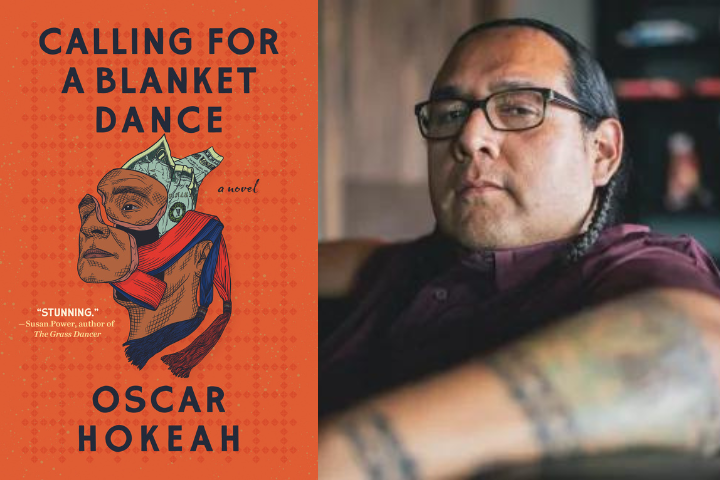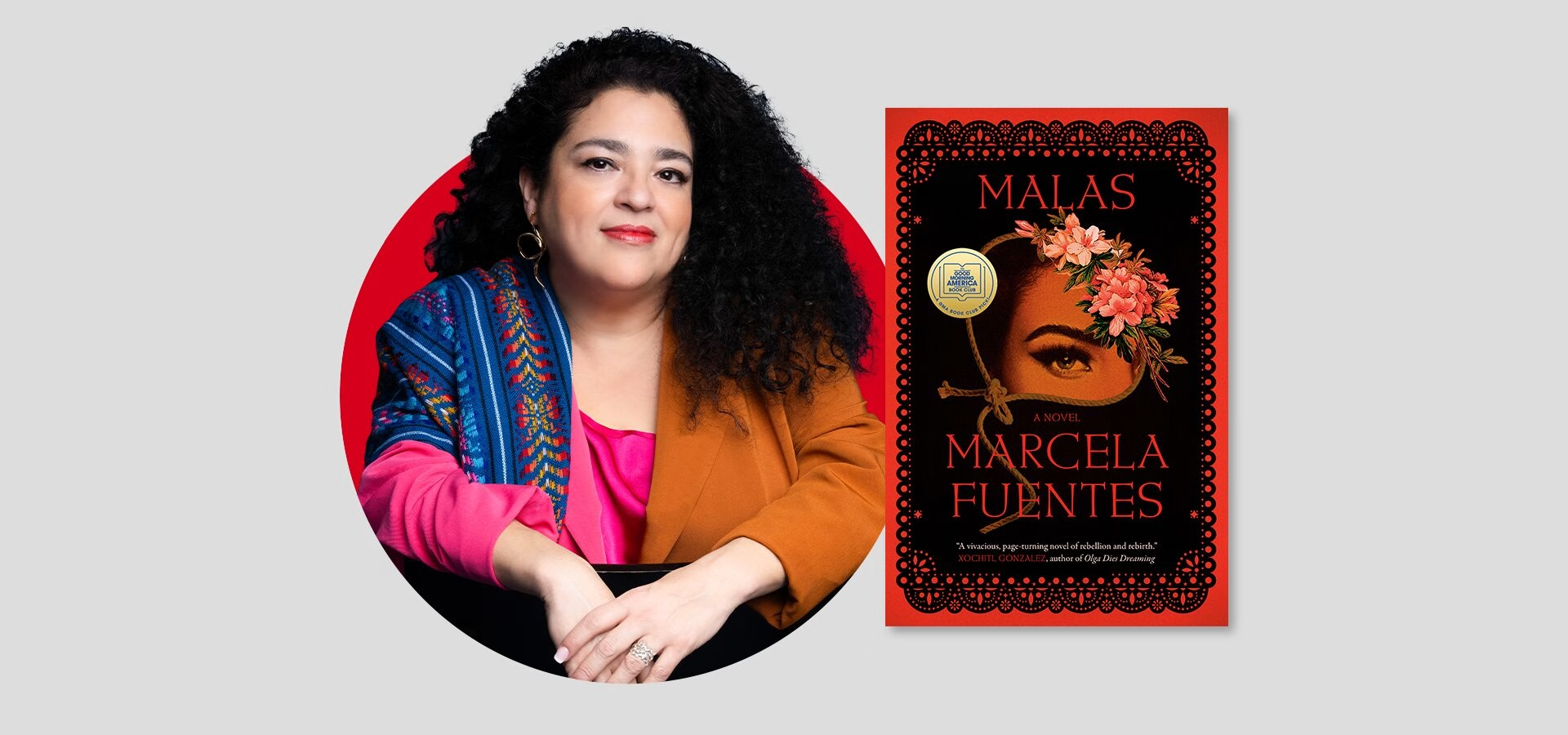
Marcela Fuentes | The PEN Ten Interview
June 20, 2024
Marcela Fuentes’ debut novel, Malas (Viking, 2024), defies tradition in more ways than one. At times a Márquezian saga spanning generations of a family, at others a modern teen punk romance, the story follows two tenacious female characters who are constantly at odds with the norm. Suffused with prose that masterfully glides between two languages, Fuentes delivers a vivid tale about identity, revenge, and womanhood.
In conversation with PEN America’s Membership Engagement Manager, Aleah Gatto, for this week’s PEN Ten, Fuentes delves into her characters’ Tejano identity: its distinctiveness, its history, and how it creates a space where family, music, and language intersect. (Bookshop).
1. The characters in Malas—their motivations and fears—feel so real. They almost feel like people you know: a father, a grandmother, a best friend. What planning went into building such robust characters?
I spent a lot of time listening to my family and friends telling stories, talking about their relatives and spouses, listening not just to the story, but the way these stories were told, what assumptions or tenderness went into them, how love often mingled in with exasperation. I also spent a lot of time sitting in my characters—their thoughts, their desires and fears, their wishes. I wanted to understand what they wanted and what their natures were… what would be revealed about them through their reactions. My aim was to capture them with the openness not to judge them for their messiness, or even root for them sometimes, but to try to be accurate about who they are. It wasn’t so much what motivates the characters, but how they respond to their motivations too, and why, even if the “why” isn’t really on the page. I didn’t want to explain behavior, but I wanted it to feel realistic.
2. At one point, Lulu Muñoz, a main character whose overarching dilemma involves her ill-boding quinceañera, inadvertently attests to the richness of her identity. She says, “Marina and I are not white or rich Mexican nationals, and we don’t have enough money to be Hispanics. Not American to the white ranching kids…Not Mexican enough for the fresas…We’re caught in the middle; we’re both and neither. We’re Tejanas.” What does it mean to be “both and neither?” Why is this nuance important?
There’s such a lot of economic, colonial, and racialized hierarchies within this community, historical policies that continue to impact the region. Lulu articulates her limited awareness of these distinctions. It started back in 1848, with the Treaty of Hidalgo, when Texas became part of the United States and all the Mexicans living within Texas suddenly became U.S. citizens and began existing in the liminal space of being counted as “white” (all US citizens at the time were classified as white) on paper, but in practice, in daily life, were often racialized as mestizos and treated accordingly, unless they had money and/or fair skin—another intersectional situation. One more layer is the distinction between Mexican nationals and Tejanos and the complex relationship between the two, in terms of ethnic and nationalistic feeling. For Lulu, and for many living in these communities, it’s a sense of belonging to all and none, a third space which is uniquely of the region.
“I also spent a lot of time sitting in my characters—their thoughts, their desires and fears, their wishes. I wanted to understand what they wanted and what their natures were… what would be revealed about them through their reactions. My aim was to capture them with the openness not to judge them for their messiness, or even root for them sometimes, but to try to be accurate about who they are.“
3. Pilar Aguirre, the second central character, is a mysterious woman who fears that she has been cursed and, eventually, is feared to have the power to curse. What purpose do Pilar and curses serve in the story? In what ways do these themes intersect with real life?
In some ways, being cursed is the easiest explanation for things that go wrong. For Pilar, her anxieties and insecurities solidify into this belief that she has been cursed. She accepts it as true, and it becomes a self-fulfilling prophecy of sorts. It can be a community belief that those who are cursed bring bad luck with them too. Also, it’s the kind of thing that can become family lore, perhaps a way to speak about generational trauma and patterns. In terms of real life, it can sometimes feel safer to blame a curse than actually be introspective or reflective about problems in real life.
4. We can’t talk about Malas without talking about music. There is so much music in the book: from the countless genres of Mexican albums that Lulu’s father covets, to Lulu’s secret rock band, to the musicality of the prose, itself—music almost seems like its own character. Why did you decide to focus on music as a centralizing element?
I love music and its ability to unify different people and generations. It’s also such a great artifact of time and place, a wonderful thing for memory and precise moments in history. As well, music is the voice of the people and social activism, a call to rebel, especially for both Lulu and her father. I wanted to showcase the music of the region and of the times as part of the richness of the culture.
“In some ways, being cursed is the easiest explanation for things that go wrong. For Pilar, her anxieties and insecurities solidify into this belief that she has been cursed. She accepts it as true, and it becomes a self-fulfilling prophecy of sorts.“
5. In the story’s dialogue and exposition, you seamlessly inlay Spanish words and expressions into the text, which is written primarily in English. What does it mean, to you, to incorporate both languages into your writing?
Honestly, I grew up hearing and speaking Tex-Mex, so it wasn’t difficult to bring it into the book. For me, using both languages means being able to capture, in some part, an aspect of home.
6. “Origin” may be a weighted term when asking about a story that meditates on identity through multiple generations. With that in mind, can you tell me about the origins of this story? Was there a specific moment where you said to yourself, “This is the story I’m going to write?”
I started writing a fairytale in a graduate seminar. Somehow, it turned into the first chapter of the book. It went from a supernatural tale to being about the paranoia and insecurities of a woman about to give birth. However, it wasn’t until I began writing an entirely new perspective, Lulu, that I realized the story was a lot bigger. I needed to figure out how these two characters were connected to each other.
7. The writing process often begins with a set purpose in mind—to answer a question, or to explore an idea. Was there anything you found out while writing Malas that you didn’t intend to learn?
I won’t spoil the plot, but one thing that surprised me was finding out that true love, however brief the experience, can be the thing that influences the course of an entire life.
8. If you placed Malas on a bookshelf, what books-–or authors—would you place it with?
I would want to place it alongside Xochitl Gonzalez, Juan Rulfo, Sandra Cisneros, Helena Maria Viramontes, Rebecca Makkai, Kelly Link, Vanessa Chan, and Temim Fruchter.
“It went from a supernatural tale to being about the paranoia and insecurities of a woman about to give birth. However, it wasn’t until I began writing an entirely new perspective, Lulu, that I realized the story was a lot bigger. I needed to figure out how these two characters were connected to each other.“
9. If you had to choose one thing that readers take away from this story, what would it be?
Honestly, I’d love readers to get a sense of Tejano culture, but more than that even, that for them to have a great time with the story.
10. There’s a lot of controversy about the publishing industry’s lack of books by writers of color. What advice would you give to BIPOC writers when trying to get their work published?
Write the book you want to read, and write the very best book you can! Also, don’t be afraid to go big—send your work out, and keep sending it. Go to summer writing conferences, use your community networks and resources, share advice and information with writer friends. Trust your vision and trust your work.
Marcela Fuentes is a Pushcart Prize-winning fiction writer and essayist. She is a graduate of the Iowa Writers’ Workshop and was the 2016-2017 James C. McCreight Fiction Fellow at the Wisconsin Institute for Creative Writing. Her work has appeared in the Indiana Review, The Rumpus, Texas Highways Magazine, Kenyon Review, Ploughshares, and other journals. Her debut novel MALAS (June 2024) and linked story collection MY HEART HAS MORE ROOMS THAN A WHOREHOUSE are forthcoming from Viking Books. She lives in Fort Worth, Texas.

Matthew Mendoza | The PEN Ten Interview
Place and story are important to me. The best work exists where the amazing and magical meet the sinister.
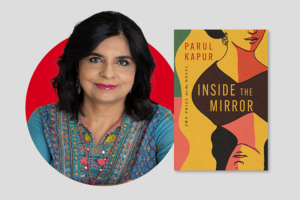
Parul Kapur | The PEN Ten Interview
There is always a cost to defiance. The question is whether you can bear it or how you can transcend it.
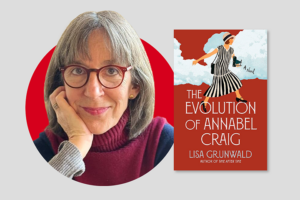
Lisa Grunwald | The PEN Ten Interview
I was looking for a time in American life when things seemed as passionately divided as they do now.
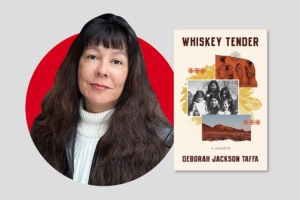
Deborah Jackson Taffa | The PEN Ten Interview
I could only share my family’s trauma if I told it in context, reminding readers that my elders struggled, not because of a moral failure on their part, but because of societal and governmental pressures.

